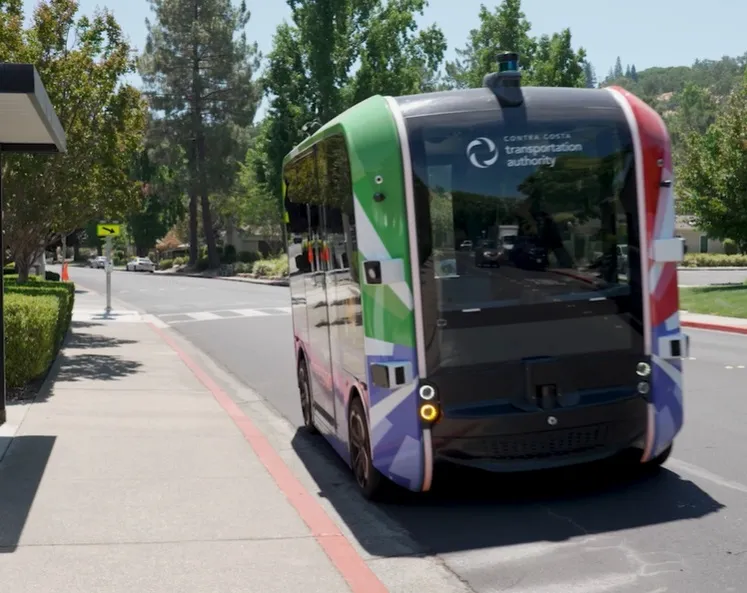The municipality of Ooststellingwerf in the northern Netherlands is taking part in a three-month self-driving vehicle pilot project, which will see two shuttle vehicles travel from the Netherlands National Forest Service visitor centre to Wester Es in Appelscha, a distance of 1.55 miles.
The driverless EZ10 shuttles, developed by Easymile, are autonomous electric vehicles without steering wheel or pedals; a ‘driver’ travels with the vehicle to stop it in the event of an emergency.
The shuttles servic
July 7, 2016
Read time: 1 min
The municipality of Ooststellingwerf in the northern Netherlands is taking part in a three-month self-driving vehicle pilot project, which will see two shuttle vehicles travel from the Netherlands National Forest Service visitor centre to Wester Es in Appelscha, a distance of 1.55 miles.
The driverless EZ10 shuttles, developed by8246 Easymile, are autonomous electric vehicles without steering wheel or pedals; a ‘driver’ travels with the vehicle to stop it in the event of an emergency.
The shuttles service run on virtual tracks that can be easily configured to accommodate sudden shifts in demand. It uses cameras, lasers and GPS to detect other vehicles and pedestrians and adjusts its trajectory and speed to avoid a collision.
For the pilot, the shuttle, which seats 10 people and it has a maximum speed of a little less than 10 miles per hour, will operate during daylight and under favourable conditions.
The driverless EZ10 shuttles, developed by
The shuttles service run on virtual tracks that can be easily configured to accommodate sudden shifts in demand. It uses cameras, lasers and GPS to detect other vehicles and pedestrians and adjusts its trajectory and speed to avoid a collision.
For the pilot, the shuttle, which seats 10 people and it has a maximum speed of a little less than 10 miles per hour, will operate during daylight and under favourable conditions.








